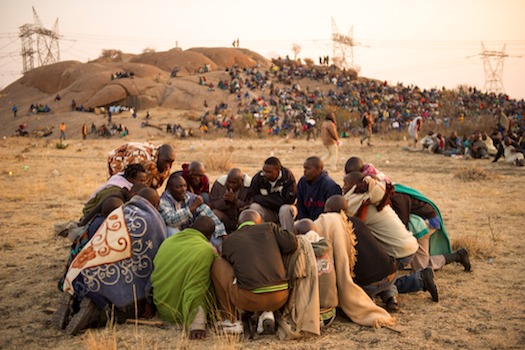- About
- Topics
- Story
- In-Depth
- Picks
- Opinion
- News
- Donate
- Signup for our newsletterOur Editors' Best Picks.Send
Read, Debate: Engage.
| July 16, 2018 | |
|---|---|
| topic: | Health and Sanitation |
| tags: | #Africa, #organ harvesting, #Transplantation, #organ trade |
| located: | Egypt, Somalia, United Kingdom |
| by: | Bob Koigi |
Illegal organ trafficking can involve the coercion of people to give up their organs, in order to be sold on the black market. The Global Financial Integrity believes that around 10% of all organ donations are made via illegal avenues, with kidneys being the highest-trafficked part of the body.
Sadly, that case of the young Somalia girl represents the new face of human trafficking which now entails the illegal removal of vital human organs. It is driven by the huge demand for these organs by patients and an acute shortage across the world.
It is a well-oiled international racket that features prominent politicians, business people, doctors, nurses and the police. The World Health Organisation estimates that the illegal organ trade, christened ‘the red market’ is worth over $1 billion each year. Africa continues to be a lucrative market for international buyers due to weak laws and enforcement, porous borders and poverty. Stories abound of agents to international buyers in pitching tents in conflict zones of Africa targeting vulnerable people with offers. In fact, it is argued that where there are poor people, there are organ brokers. An organ buyer spends on average $150,000 for vital organs like kidney, liver or heart. A willing donor will usually get $5,000 with the middleman equally getting their share. Such lucrative offers drive desperate Africans to freely trade their organs. But there are other harrowing tales of thousands of people tricked or drugged and their organs harvested without their knowledge. “We have heard cases in Egypt and South Africa where locals will meet with strangers and after a few drinks they are taken to a hotel room and when they wake up they find themselves next to a bathtub with ice and having been badly stitched. The syndicate continues to be brazen and is flourishing because of the gap in law and enforcement,” said Dr Martin Kaloki a security policy analyst who has been involved in tracking human trafficking trends in Sub Saharan Africa.
Kidneys remain the most trafficked organ world over because a patient or donor can survive with only one of them. It is estimated that approximately 7,000 kidneys are harvested and trafficked illegally each year. Indeed in 2010, the World Health Organization obtained some 11,000 illegally harvested organs most of them from countries involved in a conflict.
The recent migration of Africans to Europe has fanned the trade, with migrants who do not get jobs being sold for their organs. In other instances when a migrant can’t raise the money required to facilitate their journey across the Mediterranean Sea, they are forced to give up their organs. It explains why Egypt and Libya remain some of the largest markets in Africa.
In Egypt, a person whose organ is to be harvested is sold for approximately $23,000. The country was named among the top five largest markets for illegal organs. A 2016 swoop saw the arrests of 45 people including doctors in respected hospitals, businessmen and middlemen involved in the racket. The trade continues to flourish despite the enactment of the Transplantation of Human Organs and Tissues Act 2010 that prohibits the commercial exchange of organs.
“Migrant populations provide a key source of organs for Cairo’s burgeoning transplant industry. Barred from access to the formal labour markets, migrants have little choice but to accept precarious labour conditions. Furthermore, migrants compete with locals for limited job opportunities in an unregulated, uncertain and often hostile environment,” read a section of a report dubbed Excavating the Organ Trade: An Empirical Study of Organ Trading Networks in Cairo, Egypt.
“Responding to the surplus demand for organs, the organ trade has been identified as an alternative source of income generation for various stakeholders operating from Cairo’s Sudanese street markets,” adds the report.
In South Africa, the trade continues to blossom as it remains the most preferred destination for International patients keen on getting illegal organ transplant with patients from Brazil, Israel and Eastern Europe forming the bulk of the customers. Numerous traffick related murders have been documented with even respected hospitals featuring in the syndicate. Between 2001 and 2003 St. Augustine Hospital situated in Durban conducted over 100 illegal kidney transplants according to police records. The practice has spilt over to neighbouring Mozambique where kidney remains the organ of choice due to widespread witchcraft.
In Nigeria and Lake Chad Basin numerous graves have been excavated with bodies missing organs discovered.
Experts now argue that lack of political will and corruption will keep the trade going despite public outcry. “We are talking about government officials at top levels being actively involved in the syndicate. The people manning the border posts who take bribes and desperation among patients keen on getting these organs and poor Africans willing to do anything for money. It is a deep crisis and the African Union must now rise to the occasion and declare it a continental disaster,” said Dr Kaloki.
By copying the embed code below, you agree to adhere to our republishing guidelines.

